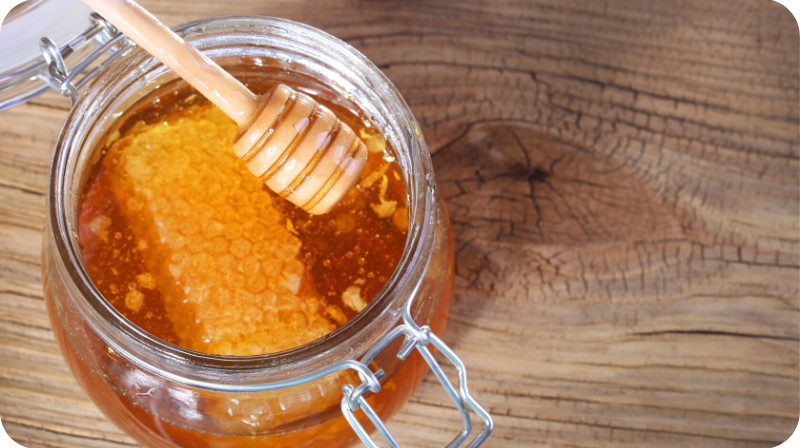Humans have enjoyed the complex flavors and intense sweetness of honey for thousands of years. They’ve also used it as a health aid for just as long. That’s because this sweetener—especially in its raw, organic form—is a powerful antibiotic and antimicrobial, and is chock full of diverse vitamins, minerals, and beneficial compounds.

Ancient cultures from the Egyptians to the Romans used honey as a healing salve for even serious wounds, a treatment for gastrointestinal maladies, an anti-inflammatory, and a soothing salve for sore throats. Lacking modern medicines, these cultures even used honey in various forms to treat serious diseases, from tuberculosis to cancer.
More recently, preliminary studies have found that honey may have the ability to lower triglycerides. For most people, though, turn this sugar alternative for more modest health concerns.
Time-Tested Honey Health Uses
Honey offers a unique combination of powerful antibiotic action with a naturally soothing properties. This means it can often have an impact on symptoms as well as the underlying cause.
- Sore Throat and Cough. This is one of the most common uses for honey; add a tablespoon to well-steeped green tea and you’ll not only make your throat feel better, you’ll be treating the inflammation that is causing the pain, and even fighting the bugs that caused the condition in the first place.
- Gut Issues. Historically, this is one of the most common folk remedies for which honey is used. There is ample evidence that honey consumed alone can have an impact on gastrointestinal conditions from simple stomach upset and irritation, to chronic gastritis, to even more serious diseases like IBS.
- Sores and Wounds. One of the most prevalent uses of honey in history has been as a salve for dressing wounds. That speaks to the well-established antibacterial and antimicrobial properties of the sweetener, and it is still a valid use for honey today. Use it to dress minor household burns, canker sores, and even cuts or abrasions.
Obviously, honey does contain high amounts of fructose and should consequently be consumed in moderation. It also matters what type you use. The less processed the honey, the better its healing abilities. For health benefits, the best is raw, organic honey, or Manuka honey.
Want to learn more about the wonders of the beekeeper’s fruit? Check out the National Honey Board’s website for in-depth information about nature’s best sweetener; they even offer recipes.







